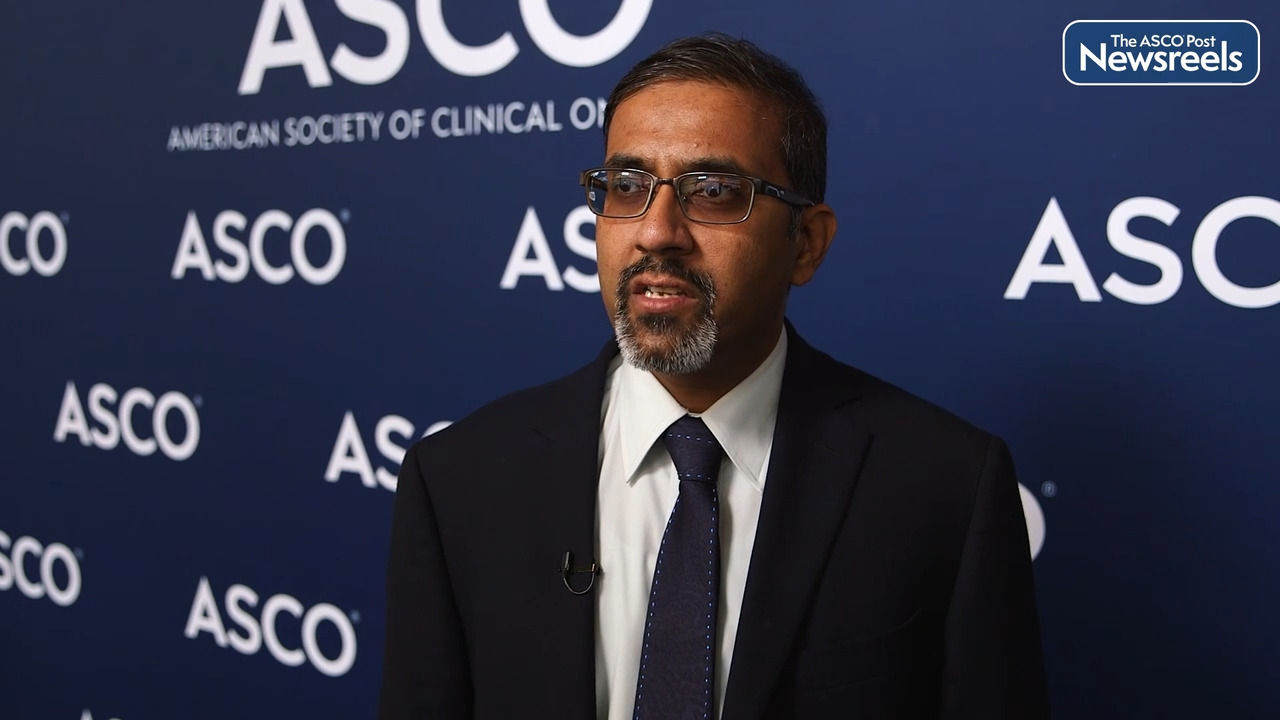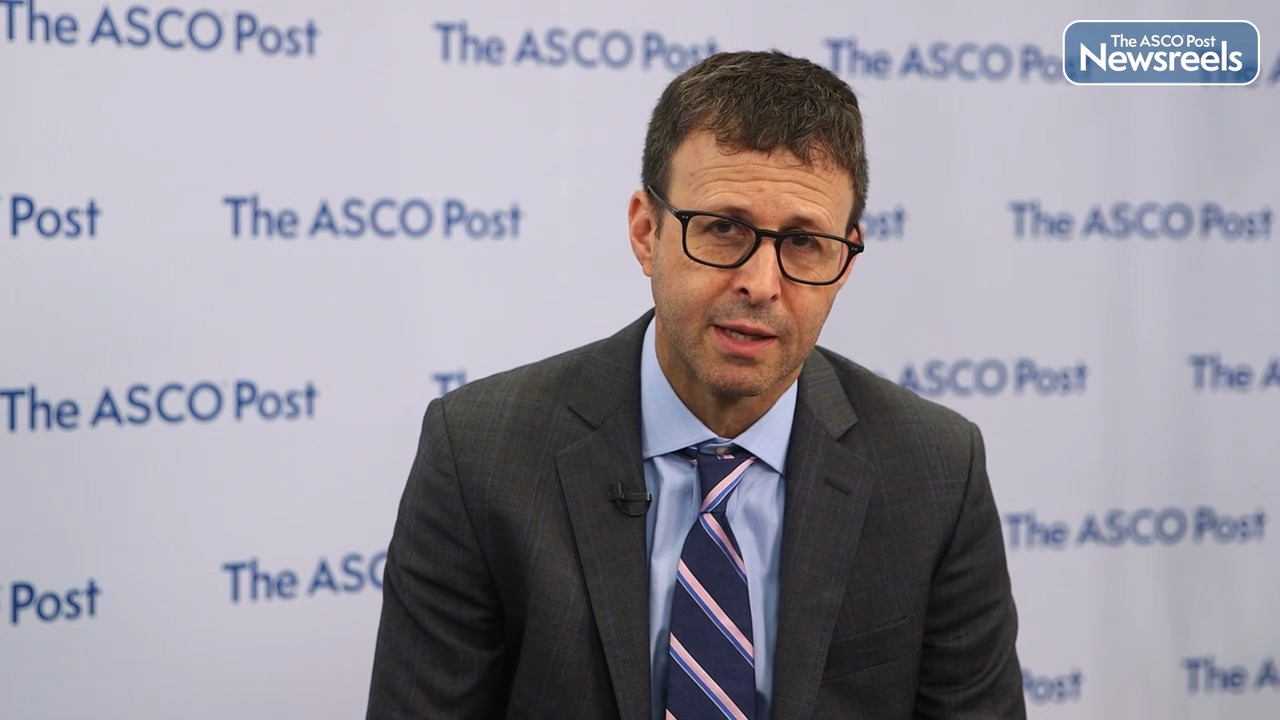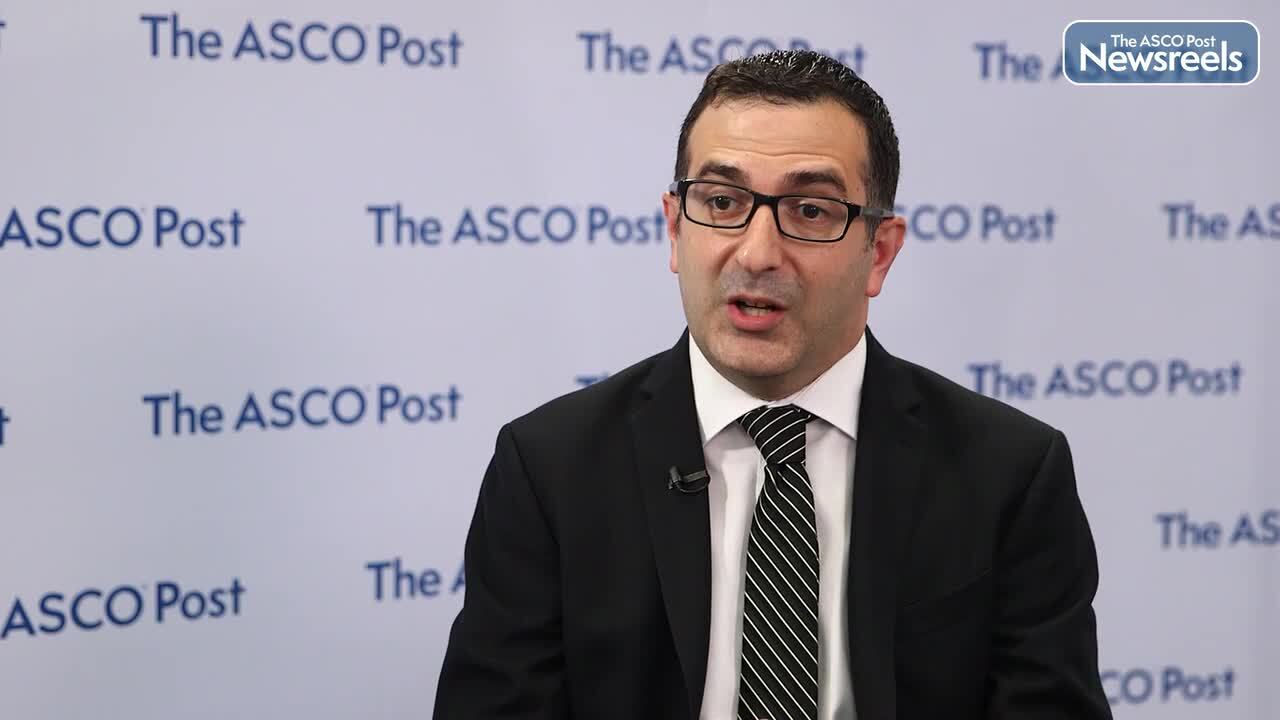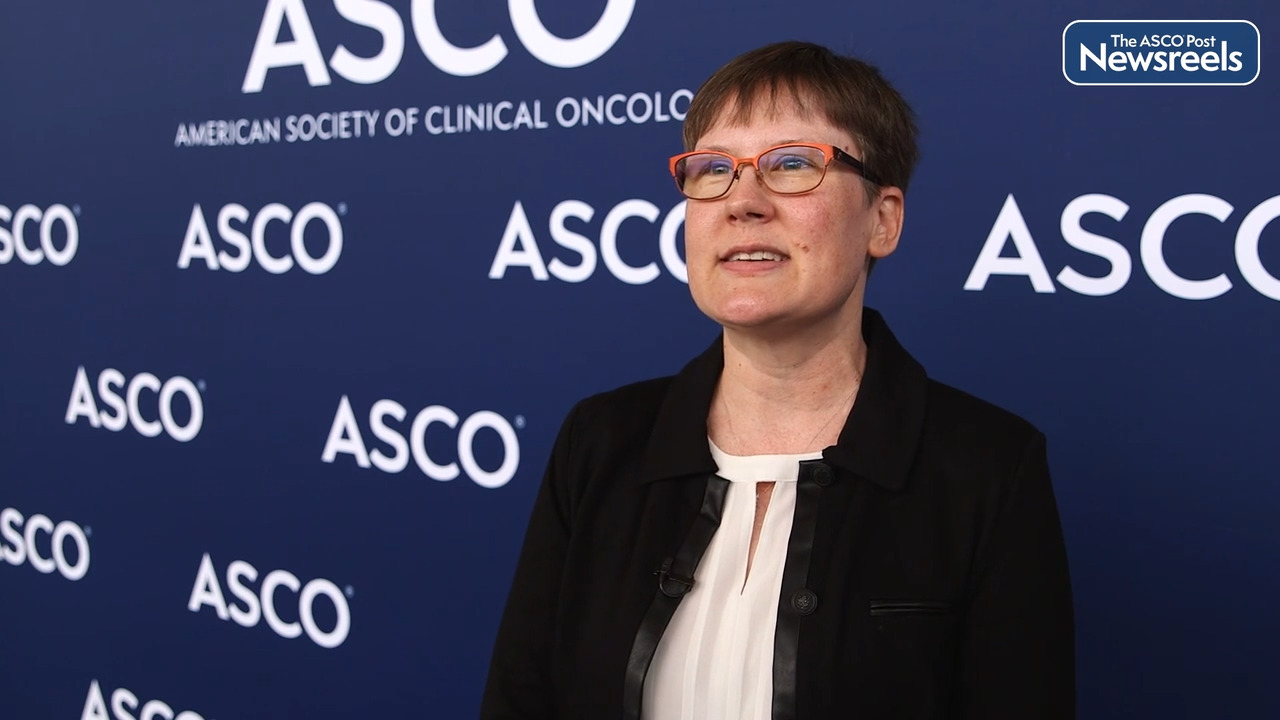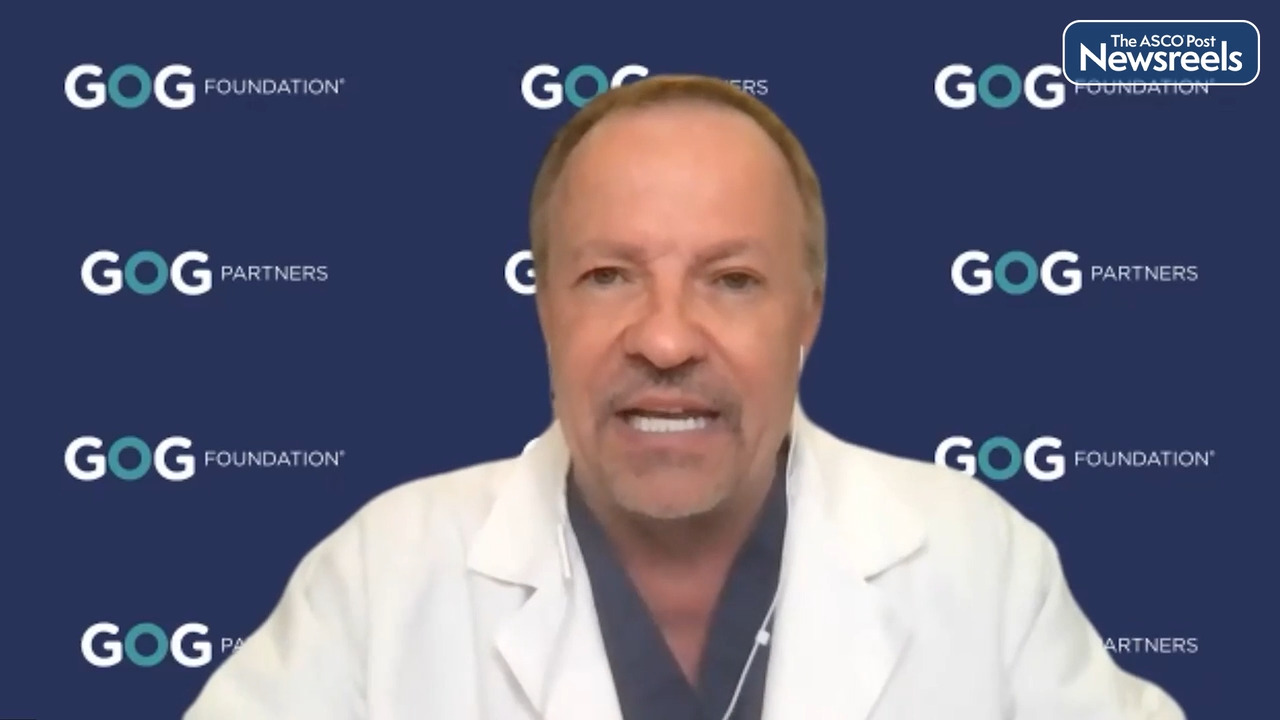Transcript
Disclaimer: This video transcript has not been proofread or edited and may contain errors.
I presented the results of a validation study done in collaboration with the U.S. GOG group about the patients with ovarian carcinoma who have the maximum benefit from bevacizumab. Bevacizumab has been approved for patients with ovarian carcinoma stage 3 and stage 4. However, there is still a big debate about what patients should actually be treated with bevacizumab, because two main large phase III trials had inconsistent outcomes about the characteristics of patients who had a maximum overall survival benefit, and there was no real biomarker of bevacizumab efficacy. So we assume that the tumor primary chemosensitivity, meaning the sensitivity of the tumor to the first cycle of chemotherapy assessed by the model CA-125 kinetic parameter KELIM, could be an interesting parameter. In an initial study with ICON7 trial, we found that among patients with high-risk disease, meaning stage 3 incompletely resected and stage 4 disease, only those who had unfavorable KELIM score, meaning poly-chemosensitive disease, had the benefit from bevacizumab. So, a validation was needed, and this is what we did with the U.S. GOG group on the trial, the GOG-0218 trial. KELIM was assessed by our team, and then we sent the KELIM score to the statistic team of the GOG group. We had very consistent outcomes. In patients with high-risk disease, only those who had unfavorable KELIM score, meaning poly-chemosensitive disease, had the benefit in overall survival by about 6 months, 29 to 35 months. And in patients with low-risk disease, those who had favorable KELIM, meaning highly chemosensitive disease, they had deleterious effect of bevacizumab on the overall survival by about 17 months. So, in conclusion, the two studies are now very consistent in terms of outcomes. We reconcile the data of the two trials. The survivor cures are very, very similar, and we consider that the tumor primary chemosensitivity is probably a biomarker of bevacizumab efficacy. So bevacizumab should be encouraged in patients with high-risk disease and poly-chemosensitive disease, but should be discouraged in patients with low-risk disease and highly chemosensitive disease. Just of note, KELIM can be calculated online for your patient. You will be requested to enter the dates of the first three cycles of chemotherapy, the value of CA-125, and the dates of CA-125. You press compute and you will have the KELIM score for your patients.
